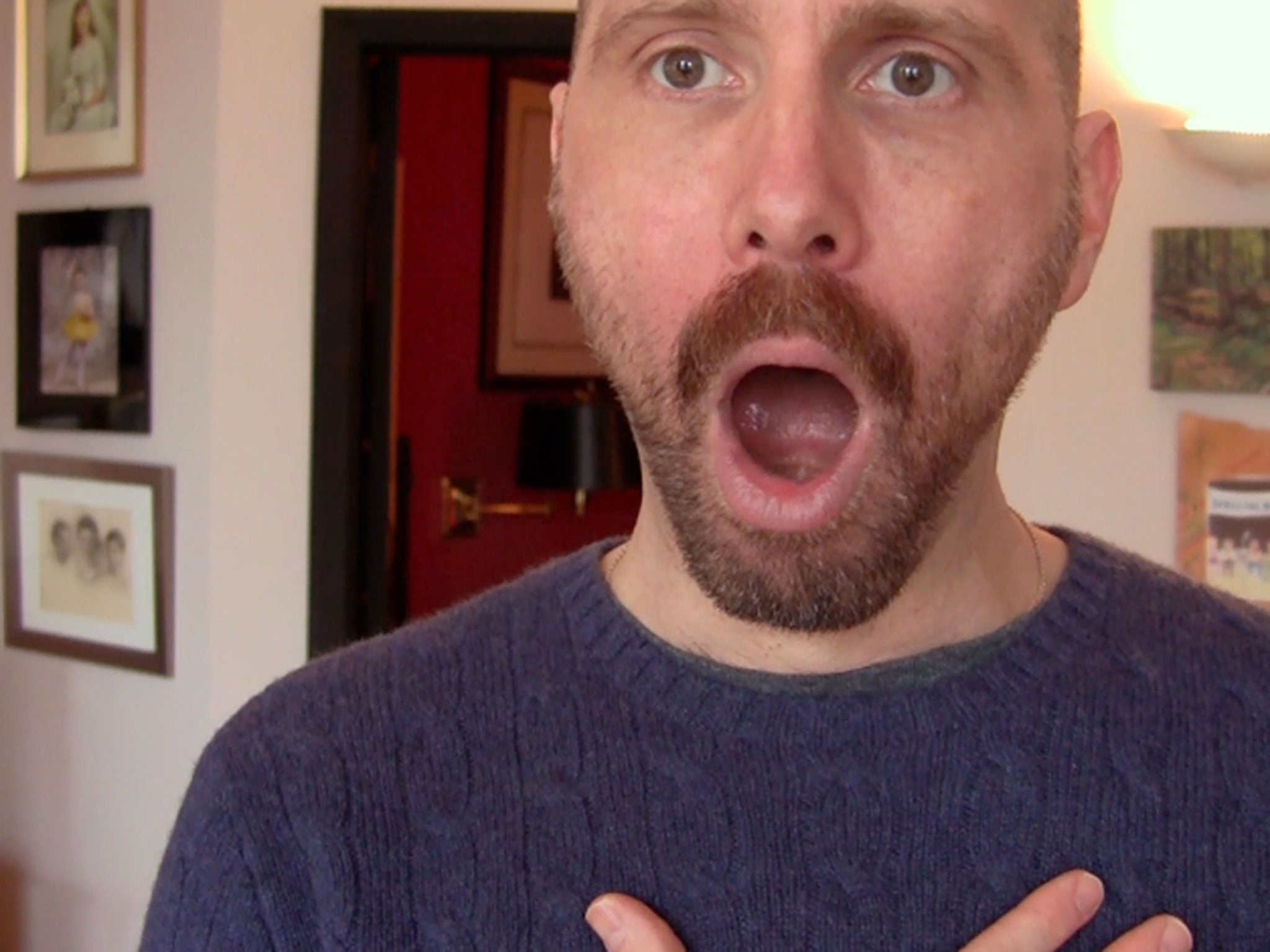Do I Sound Gay? film review: David Thorpe overcomes his self-loathing and "internal homophobia"
(15) David Thorpe, 77 mins

Your support helps us to tell the story
From reproductive rights to climate change to Big Tech, The Independent is on the ground when the story is developing. Whether it's investigating the financials of Elon Musk's pro-Trump PAC or producing our latest documentary, 'The A Word', which shines a light on the American women fighting for reproductive rights, we know how important it is to parse out the facts from the messaging.
At such a critical moment in US history, we need reporters on the ground. Your donation allows us to keep sending journalists to speak to both sides of the story.
The Independent is trusted by Americans across the entire political spectrum. And unlike many other quality news outlets, we choose not to lock Americans out of our reporting and analysis with paywalls. We believe quality journalism should be available to everyone, paid for by those who can afford it.
Your support makes all the difference.New York-based journalist and film-maker David Thorpe's doc seems initially like a vanity project. He is a gay man who has just broken up from a partner. He is not feeling confident in himself and is becoming increasingly irritated with his own "braying, ninny-like" voice.
Early in the film he conducts vox pops, asking passers-by if he "sounds gay". He visits speech therapists for a "phonetic analysis" of the way he talks and interviews other prominent gay figures, among them former Star Trek actor George Takei and writer David Sedaris.
Gradually, the scope of the film widens and Thorpe begins to ask probing and profound questions about the way that voice forms identity. He delves back into his childhood, meeting old friends and family members who tell him that his voice used to sound completely different. He learns how to deepen and slow down his delivery so that his voice carries more authority. He deals with, and overcomes, his own self-loathing and "internal homophobia". The breezy and humorous tone doesn't disguise the fact that Thorpe's film is both intimate and quietly courageous.
Join our commenting forum
Join thought-provoking conversations, follow other Independent readers and see their replies
Comments